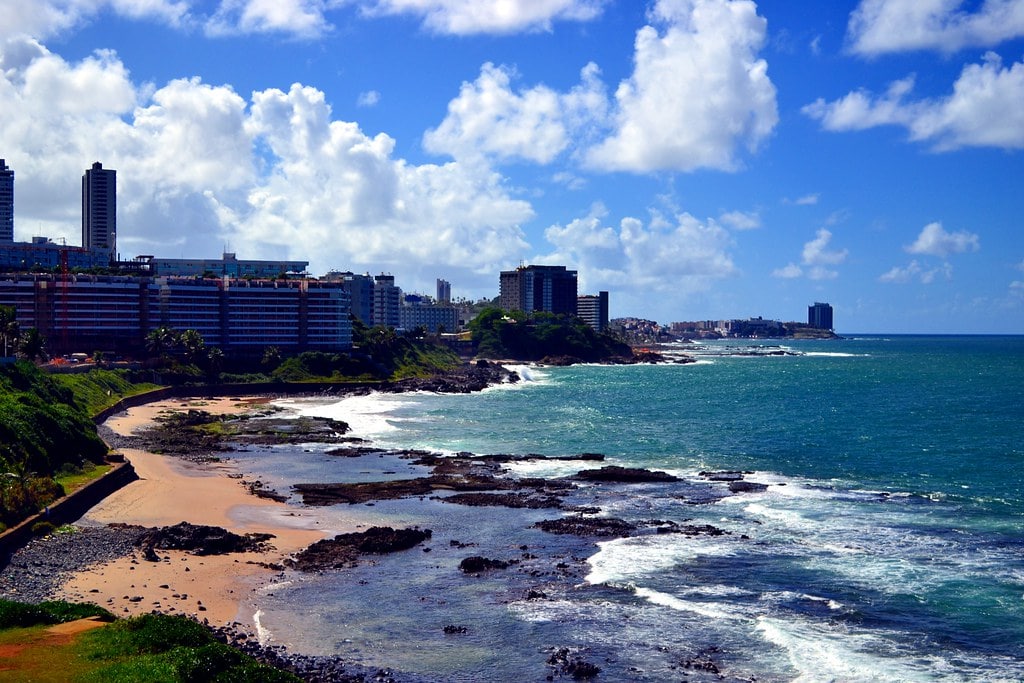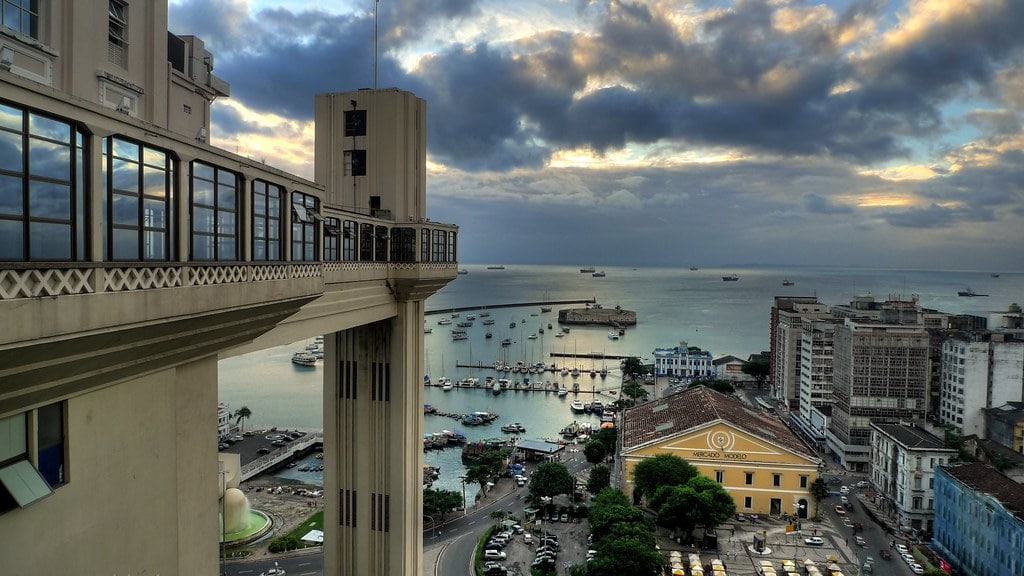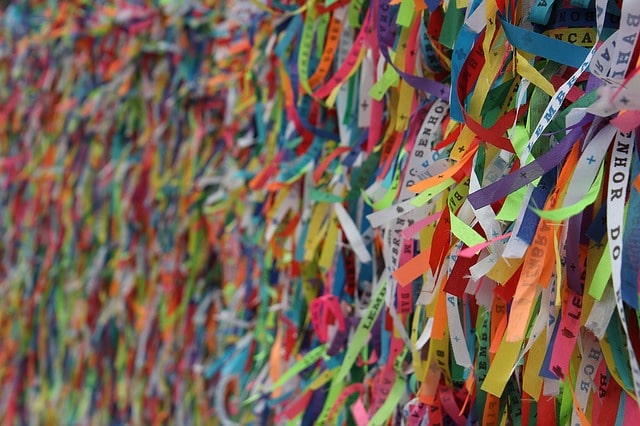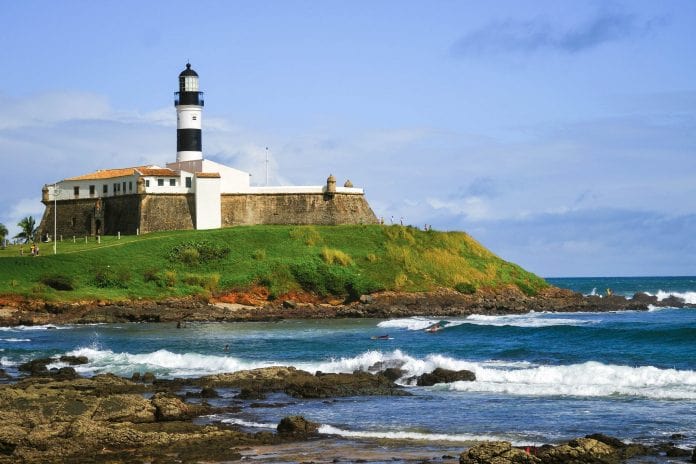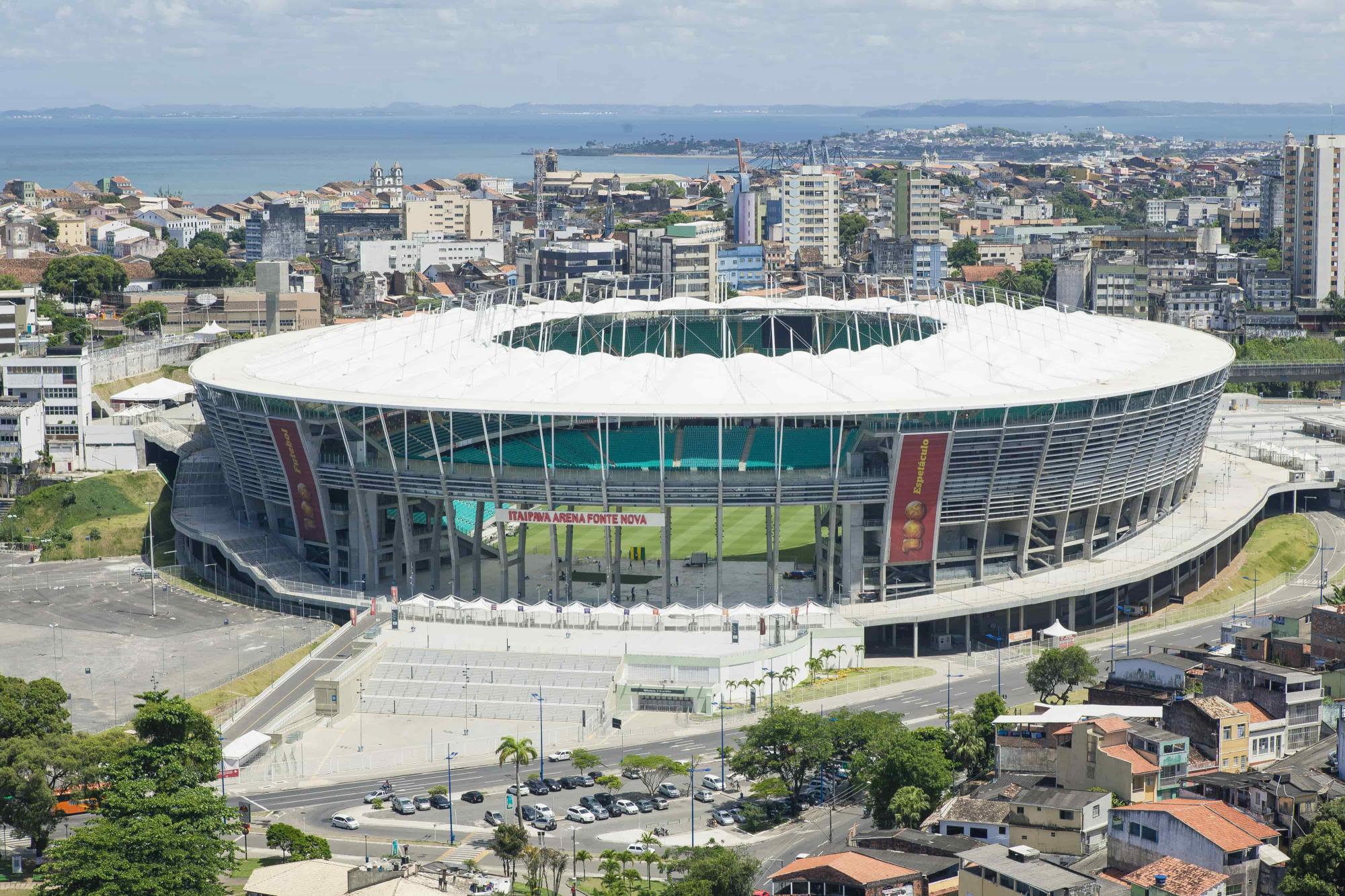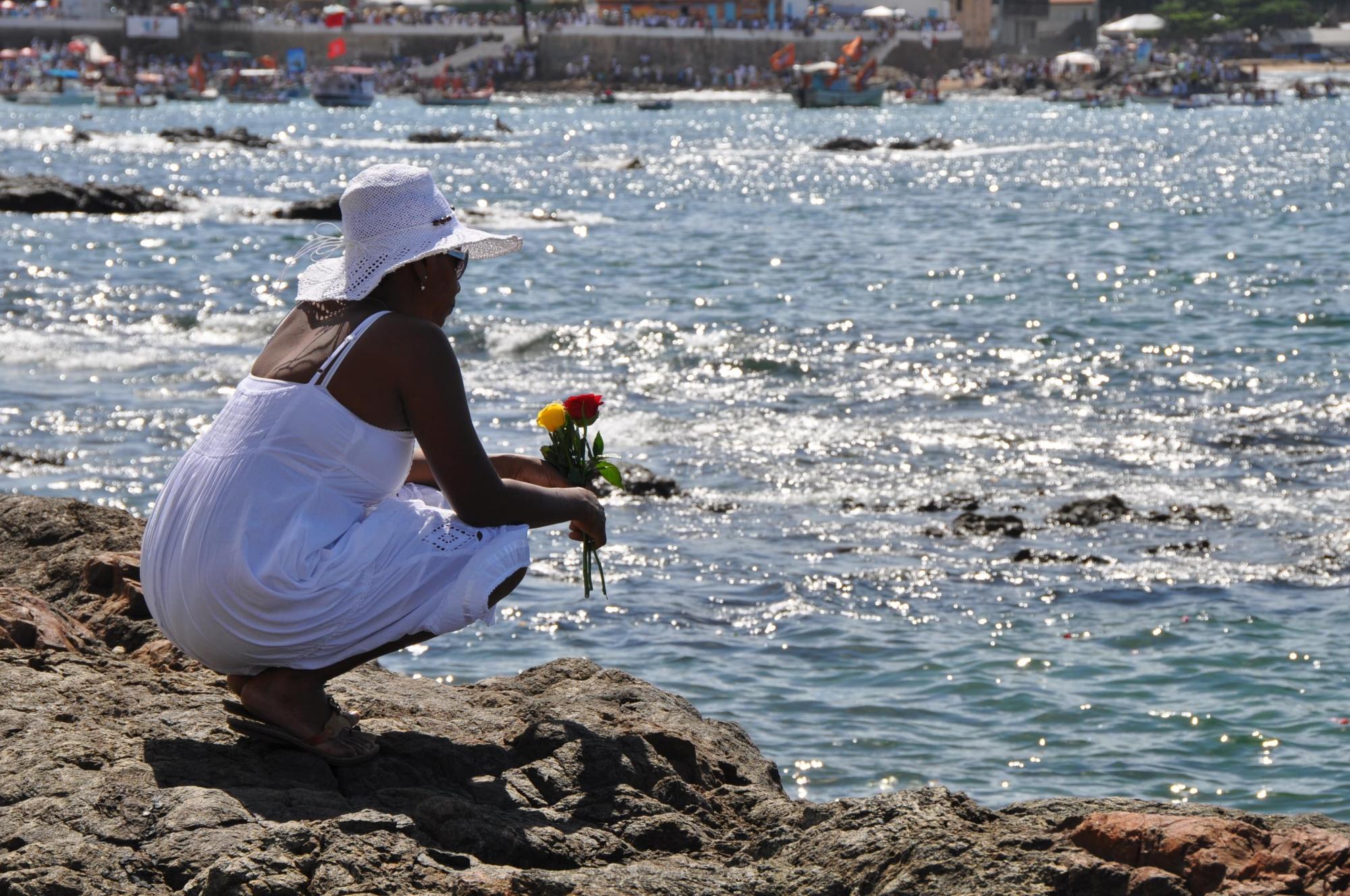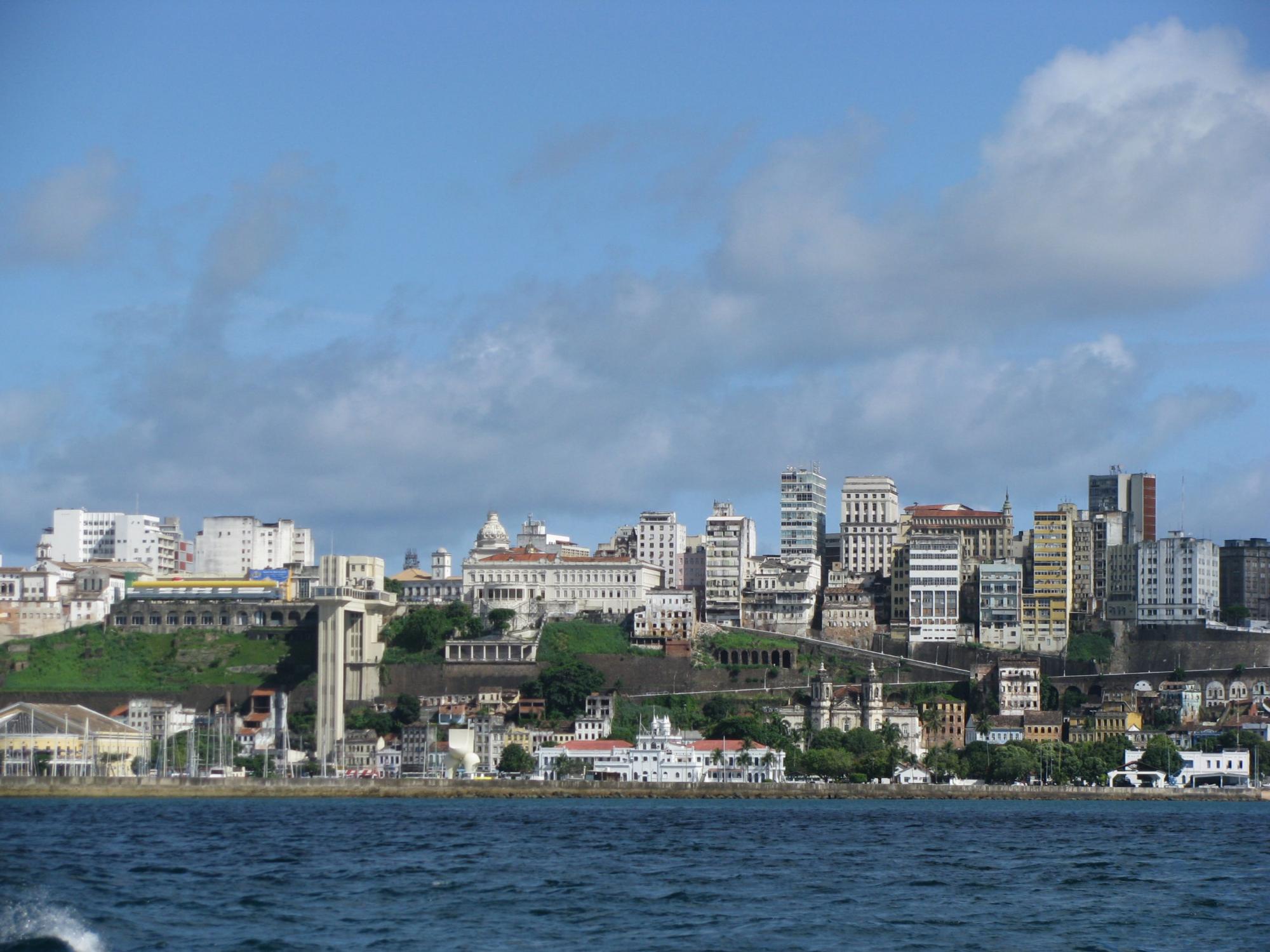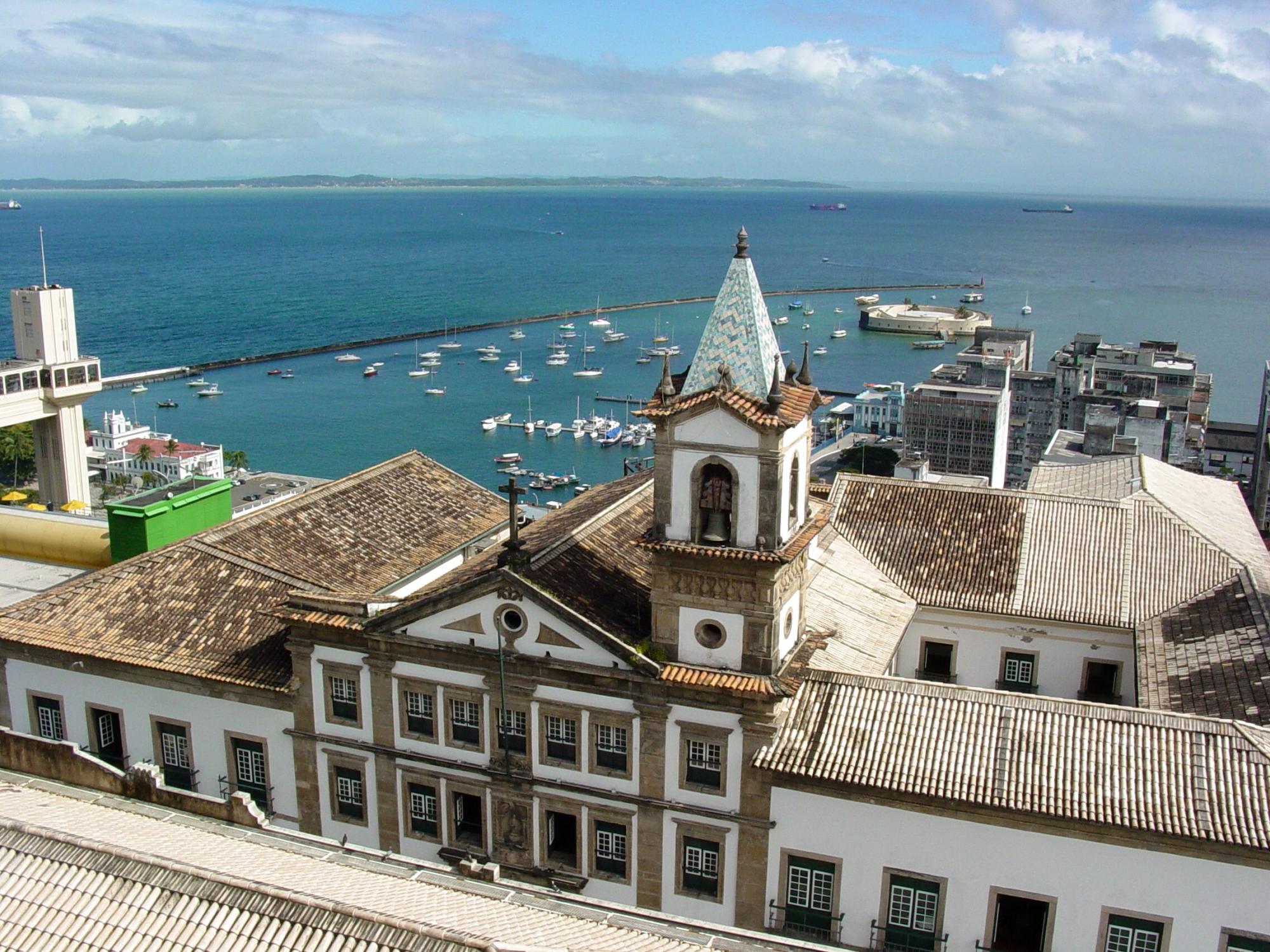Crystal clear beaches, valuable historical remains and a fascinating network of diverse cultures serve as a backdrop for the huge list of tourist attractions to see in Salvador de Bahia. The coasts and the center of the city surprise tourists at every step, the combination of cultures of European, Amerindian and African origin is expressed in the unique Bahian gastronomy, the eclectic architecture and the magnificent crafts found in every corner of the city. the city. To this is added the great urban infrastructure proper to its status as the third Brazilian city in population.
• Tour of the Pelourinho
Declared a World Heritage Site by Unesco, it corresponds to the old town, a magical area where colorful colonial architecture, baroque temples and narrow cobblestone streets rise and fall through its rugged geography.
Numerous historical buildings, street dance performances, rhythms of drums in the squares, dozens of bars and artistic centers, end by making the Pelourinho a dream space that mixes the rich heritage of past times with a vibrant current cultural life.
• Bahia beaches
With 50 kilometers of white sands, Salvador has one of the most extensive coasts in the country. From Inema to Flamengo, there are several beaches that are distributed between the lower city (bathed by the endless Bay of All Saints) and the upper city (Atlantic waters). The tropical temperature of the water, the magnificent maritime landscapes and the lively cultural activities characterize the Bahian coast. The Puerto de la Barra is one of the most attractive beaches of Salvador, since it is the only one of the high city located on the Bay of All Saints. Praia do Forte, far from the center, dazzles with its ecological riches.
• The famous Bahia Carnival
Among the famous carnivals of Brazil, the one in Bahia occupies an incomparable place for its picturesque traditions and its cheerful and unbridled spirit. The Brazilians themselves consider it the funniest carnival in Brazil, and no wonder: the celebration covers 25 kilometers of street where the "electric trios" are followed by about two million people jumping and dancing to the music. Party lovers can not miss the opportunity to travel to Bahia in February, the month of Carnival.
• Walks through the "Praça da Sé"
One of the preferred pedestrian promenades in the center of the Upper City is the "Praça da Sé", connected to the "Terreiro de Jesus" through the Cathedral. This area is not only the gateway to the historic "Pelourinho", but also enjoys a lively cultural and commercial life in its many shops and food venues.
• Sunsets at "the Solar do Unhão"
The best sunset of Salvador can be appreciated from this complex of colonial architecture, located in the Bay of All Saints. Inside the old construction works a small Museum of Modern Art and a restaurant of excellent typical food. Jazz concerts are offered on Saturday nights.
• Ecology in the "Parque Abaeté"
Around Lake Abaeté (famous for the chromatic contrast of its dark waters with the white dunes) vigorous natural beauties are displayed, preserved by the State as protected areas. The Park is located in the Itapuã neighborhood of Salvador, and in addition to its fascinating biodiversity it has an entertainment area with bars where you can enjoy good music.
• The architectural richness of the churches
Salvador is a city of great religious roots, as evidenced by the large number of churches and ancient chapels that are distributed in its territory. The inescapable temples are the Cathedral of Salvador, a majestic example of Mannerist architecture with more than 300 years old; the Church of Nosso.
"Senhor do Bonfim" on the peninsula of "Itapagipe", richly decorated neoclassical; and the Convent of San Francisco, one of the churches of greater magnificence in the country, of luxurious Baroque style.
• Shopping in the Model Market
The most colorful of the Bahian traditions is found in this huge market of almost a century of life, full of art and craft shops, as well as some typical bars and restaurants.
• Lacerda Elevator
Emblematic point of the city, this public elevator was created in the nineteenth century by engineer Augusto Frederico de Lacerda. With its 72 meters of height, the elevator connects the High City with the Low City, being located in the strategic Praça Cayru of the district of Comércio. From its height you get fabulous views of the Bay and the Model Market.
• The Island of Itaparica
A nice boat ride leads to ltarapica, a beautiful island near Bahia and full of colonial charms in harmony with paradisiacal beaches. The island hosts two municipalities, Itaparica and Vera Cruz, both known for their tourist excellence. Its healing waters and beautiful coral reefs make the coast of Itaparica one of the favorite destinations for an excursion from Salvador de Bahía.

 English
English
 Español
Español
 Français
Français
 Italiano
Italiano
 Português
Português
 Deutsch
Deutsch
 简体中文
简体中文
 Filipino
Filipino
 日本語
日本語
 한국어
한국어
 Tiếng Việt
Tiếng Việt
 ภาษาไทย
ภาษาไทย
 繁體中文
繁體中文
 हिन्दी
हिन्दी
 Eesti
Eesti
 Slovenčina
Slovenčina
 Slovenščina
Slovenščina
